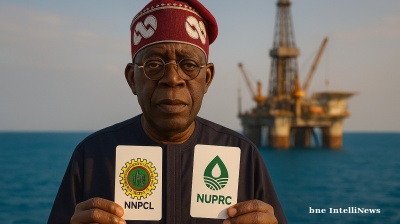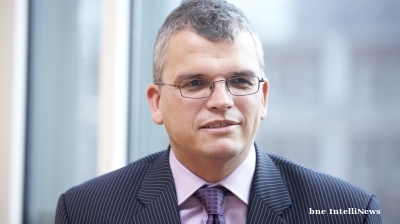Vodka billionaire Yuri Shefler has a thirst for a fight. The exiled Russian tycoon and his lawyers were back in a Dutch court on May 17, trying to wrest full control of the vodka brand Stolichnaya from the Kremlin in a battle that stretches back more than a decade.
A decision by a Rotterdam court in 2015 forced Shefler’s company Spirits International (SPI) to hand over some trademark rights to the Russian government. The ruling also led to SPI having to halt the sale of Stolichnaya and Moskovskaya vodka in Holland, Belgium and Luxembourg.
SPI had been hoping to overturn that ruling with a decision on May 17 relating to 13 European jurisdictions, but the court in The Hague deferred final judgement.
This is the first time that a European court has weighed in on the ownership of national trademarks in both EU and non-EU countries. If the Dutch court finds in favour of Russia, SPI argues it would create a dangerous precedent for EU law and would taint the normally business-friendly reputation of the Netherlands.
Stormy saga
The battle over the ownership of Stolichnaya vodka has the makings of an epic Tolstoy novel, with a series of skirmishes that feature a fugitive Shefler on the run, as well as allegations of death threats, secret distilleries, corporate spying and impounded sea freighters.
“This case represents an expropriation in the name of the Russian state, but really for the benefit of people close to the administration,” SPI’s lawyer Radboud Ribbert tells bne Intellinews in an interview. “Somebody powerful wanted what the owner of the business has.”
But Joris van Manen, a lawyer from Hoyng Monegier handling the case on behalf of the Russian state-holding FKP, accuses SPI of trying to “politicise” the dispute. “The Dutch courts did not pay attention to these political arguments and confirmed, up and until the Dutch Supreme Court, in various thorough and well-founded judgments that FKP is the legal owner of the Stolichnaya and Moskovskaya trademarks,” van Manen tells bne IntelliNews.
The Dutch court deferred final judgement in the case on May 17. While the court found the company was not legally transformed from a state-owned entity to a private one in 1991-1992, it had yet to decide which party currenty owns the trademarks. “A number of questions still [have] to be answered,” the Dutch court said on its website, noting that, “One of [the] issues is the alleged protection of Spirits as assignee in good faith”.
The court said both parties must make statements on the remaining issues as well as the contents of the applicable laws of the 13 countries, after which these issues will be heard in court. After that has taken place, the court will deliver its next judgment.
Much is at stake for SPI. In the 13 EU and non-EU jurisdictions in question, the group says it has sales of 4mn-5mn bottles per year. Pending the outcome of the decision, the group doesn’t sell vodka in the Benelux region, but claims to have lost sales amounting to more than 400,000 bottles.
“The impact of the Netherlands making new laws for 13 different countries in respect of their national intellectual property would be dangerous,” says Ribbert. “The procedural hurdle for us is high because there is a judgement out there already – which we are fighting to overturn – and it may influence this other court in their own decisions.”
Soviet-era hangover
Stolichnaya, or Stoli as it is familiarly known, is a grain-based and quadruple distilled vodka. The company’s early history is cloudy. It was produced in Moscow’s State Wine Warehouse No.1, which was built in 1901 – a date which has sometimes appeared in marketing for Stolichnaya. But the trademark was only registered in 1938, and production is only documented from 1948, though is may have begun a couple of years earlier.
Pepsi Cola famously distributed Stolichnaya in the US in the 1970s as part of a barter agreement with the Soviet Union, which lacked a free market economy at the time.
After the Soviet Union collapsed, many of Russian distilleries fell into private hands. With no legal recognition of trademarks for the most popular brands, different distilleries all tried to produce the same vodka labels and violent conflict broke out.
Stolichnaya was very much struggling and was saddled with massive debts from the Soviet era. SPI claim the business model then was very different and it was essentially a middle-man selling vodka from other vodka producers and taking a small commission on sales.
During the chaos of the 1990s, Shefler assumed control of Soyuzplodoimport, a state-owned enterprise producing Stolichnaya which had been been recently privatised.
Shefler then gained the trademarks in 1997, but the Russian government contends that the privatisation of the business during the chaos following the fall of the Soviet Union was not completed and that the purchase was invalid.
FKP maintains the Soviet-era company, to which it claims to be the successor, was unlawfully privatised and that Shefler used coercion to persuade shareholders to sell to him. SPI denies these claims.
Shefler is reported to have paid $300,000 for 43 brands, whereas a subsequent report by a Kremlin audit commission valued those rights at $400mn.
When President Vladimir Putin came to power in 2000, he promised to renationalise vodka production as well many other industries considered public property and that been sold off cheaply during the early privatisations.
“Until 2000, the Russian Federation time and again confirmed that the company was the legitimate owner of the trademarks, and together with the company defended these trademarks,” says Ribbert. “After Putin came to power, the Russian Federation changed its tune.”
In 2002, a Russian court ultimately gave control of the brand to FKP. Ever since then, FKP has argued it owns the rights to the brand, but it has had to contest SPI’s distribution of Stolichnaya in court in every country where it sells the product.
“This was the first case of open de-privatisation,” Shefler told Forbes Russia in May 2015. “Even then it was quite obvious that if they came for me, they would be able to go after the oilmen and the miners.”
In 2002, FKP launched Stolichnaya in Russia under its own label, while SPI has since become the fourth-biggest premium vodka brand and mushroomed into a global booze conglomerate worth an estimated $2bn. It sells alcohol under 380 brands in 160 countries and owns the rights to the Rizhsky and Cherny Balsam brands, as well as everything from wine, to rum and Mexican tequila.
When Shefler took over, the old business model was revamped and the business was fully restructured to produce the vodka and production assets were acquired in Kaliningrad, Latvia and a facility was built in Russia. After the 2002 ruling, production continued for a period in Russia before shifting to Lativa.
“He fully overhauled and invested in the marketing and the branding and packaging of the product, which was not previously done in-house,” says Ribbert. “In those early years, there was investment by Shefler of about a couple hundred million dollars.”
Sinister claims
The battle between the two sides has been acrimonious. In 2003, the Kremlin asked Interpol to help find Shefler after accusing him of threatening to kill Vladimir Loginov, a former deputy agriculture minister. Shefler denied the allegations and said the case was part of a plot to hijack his company.
The charges against Shefler, who left Russia in 2002 and has never returned, were dropped in September 2010. The only pending charge against him is “the organisation of perpetration of a criminal offence of illegal use of a trademark” under two articles of the Russian Criminal Code.
SPI said there were about 30 raids on SPI’s offices in the late 1990s and early 2000s with thousands of key documents being seized.
“You can imagine how hard it is to litigate against an opponent who has seized your corporate documents and never given them back so essentially you are fighting one hand – if not both- tied behind your back,” says Ribbert.
On behalf of his client FKP, van Manen says claims that “key documents” are missing are “untrue”.
“FKP is quite surprised that SPI never raised this argument until 2015 where this case has been running since 2003,” van Manen says. “In almost 15 years Spirits has not been able to bring forward any conclusive theory about the alleged transformation and no document will ever prove any alleged ‘transformation’ because it is evident that no transformation ever occurred.”
Shefler, whose fortune American Forbes estimates at $1.7bn, seems to have stepped back from the day-to-day running of the business, but his lifestyle keeps him in the newspapers. In March, Shefler was widely reported to have shelled out £25mn to buy the Tulchan Estate, most expensive estate in Scotland with 21,000 acres. That was pocket change for the tycoon, who sold his 134-metre yacht in October for $400mn to a Saudi prince.
Netherlands battle ground
The protracted and hostile legal battle, which started in 2003, is being fought in multiple geographies, including Australia, Switzerland and the US, which accounts for almost half of Stolichnaya’s sales. Shefler told Forbes in 2015 that the case had already cost him a whopping $200mn, including $80mn in the US.
But it is the Netherlands which has become the nexus for legal showdowns involving the Kremlin and state-controlled entities. In April last year, a Hague court overturned a record-breaking $50bn in awards that had previously made by a Court of Arbitration to shareholders of the oil company Yukos. The Hague’s International Court of Justice has also been the scene this year of a case brought by Ukraine, alleging Russia has escalated its interference in Ukrainian affairs to dangerous new levels since 2014.
The Netherlands itself has deep and long-standing trade ties with Russia but public feeling towards Moscow has slumped since a Dutch inquiry last year linked the Kremlin to the downing of an airliner over Ukraine, which caused the deaths of 173 Dutch nationals.
It’s anyone’s guess whether politics, including Russia’s involvement in propping up the Syrian regime and its alleged interference in the US electoral process, will have any effect on these legal outcomes.
SPI and Shefler are clearly hoping that the growing antipathy towards the Russian government will help to tilt things their way.
“With the original case, I think there was more willingness to give Putin the benefit of the doubt,” a source close to SPI told bne IntelliNews. “He was new and Europeans were trying to feel him out and to see how he would lead Russia. But over the past 14 years, we have seen people take a different view of Putin, how he rules and there is a greater understanding that you have to analyse the issues on your own independently and we hope that starts to happen in the Netherlands with this case. Unfortunately, the decisions to date don’t support our hope.”
News

Nigerian president advances oil bill placing NNPCL under control of Finance Ministry, upstream regulator
President Bola Tinubu has endorsed a bill that would undermine the "independence" of NNPCL, shifting ownership to the Finance Ministry and handing new powers to upstream regulator NUPRC.

‘Tinder Swindler’ Simon Leviev detained in Georgia on Interpol red notice
Shimon Yehuda Hayut gained worldwide notoriety thanks to the 2022 Netflix documentary 'The Tinder Swindler', which detailed how he allegedly posed as the son of billionaire diamond tycoon to scam women he met on Tinder.
_1758026150.jpg)
Bolivia sells $1bn of gold reserves in forward contracts to shore up finances
In recent months, the Central Bank of Bolivia (BCB) has executed forward contracts on gold worth nearly $1bn, raising questions about the legal framework, transparency of operations and long-term implications for the economy.

Taiwan releases updated civil defence guide focusing on wartime scenarios
Taiwan releases updated civil defence guide focusing on wartime scenarios, including protection tips and warnings about false surrender messages during potential conflicts.




